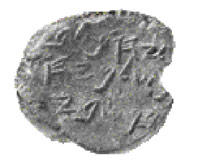Nicholas Kristoff has another column (from today's
New York Times) on how the genocide is getting worse in Darfur. He points out that the Congress has cut out all funding for the 7,000 African Union peacekeepers (who are already too few really to do much to stop the genocide). Even though we decry this genocide, and call it what it is, we are not stopping it.
Since this column is behind the Times' subscriber firewall, I'm including the whole text.
NYALA, SudanWho would have thought that a genocide could become worse? But after two years of heartbreaking slaughter, rape and mayhem, the situation in Darfur is now spiraling downward. More villages are again being attacked and burned - over the last week thatch-roof huts have been burning near the town of Gereida and far to the northwest near Jebel Mun.
Aid workers have been stripped, beaten and robbed. A few more attacks on aid workers, and agencies may pull out - leaving the hapless people of Darfur with no buffer between themselves and the butchers. The international community has delegated security to the African Union, but its 7,000 troops can't even defend themselves, let alone protect civilians. One group of 18 peacekeepers was kidnapped last month, and then 20 soldiers sent to rescue them were kidnapped as well; four other soldiers and two contractors were killed in a separate incident.
What will happen if the situation continues to deteriorate sharply and aid groups pull out? The U.N. has estimated that the death toll could then rise to 100,000 a month. The turmoil has also infected neighboring Chad, which is inhabited by some of the same tribes as Sudan. Diplomats and U.N. officials are increasingly worried that Chad could tumble back into its own horrific civil war as well.
This downward spiral has happened because for more than two years, the international community has treated this as a tolerable genocide. In my next column, my last from Darfur, I'll outline the steps we need to take. But the essential starting point is outrage: a recognition that countering genocide must be a global priority.
It's true that a few hundred thousand deaths in Darfur - a good guess of the toll so far - might not amount to much in a world where two million a year die of malaria. But
there is something special about genocide. When humans deliberately wipe out others because of their tribe or skin color, when babies succumb not to diarrhea but to bayonets and bonfires, that is not just one more tragedy. It is a monstrosity that demands a response from other humans. We demean our own humanity, and that of the victims, when we avert our eyes.
Already, large swaths of Darfur are so unsafe that they are "no go" areas for humanitarian organizations - meaning that we don't know what horrors are occurring in those areas. But we have some clues. There are widespread reports that the janjaweed, the government-backed Arab marauders who have been slaughtering members of several African tribes, sometimes find it convenient not to kill or expel every last African but to leave a few alive to grow vegetables and run markets. So they let some live in exchange for protection money or slave labor.
One Western aid worker in Darfur told me that she had visited an area controlled by janjaweed. In public, everyone insisted - meekly and fearfully - that everything was fine. Then she spoke privately to two sisters, both of the Fur tribe. They said that the local Fur were being enslaved by the janjaweed, forced to work in the fields and even to pay protection money every month just to be allowed to live. The two sisters said that they were forced to cook for the janjaweed troops and to accept being raped by them.
Finally, they said, their terrified father had summoned the courage to beg the janjaweed commander to let his daughters go. That's when the commander beheaded the father in front of his daughters. "They told me they just wanted to die," the aid worker remembered in frustration. "They're living like slaves, in complete and utter fear. And we can't do anything about it." That aid worker has found her own voice, by starting a blog called "Sleepless in Sudan" in which she describes what she sees around her. It sears at
Sleepless in Sudan, without the self-censorship that aid groups routinely accept as the price for being permitted to save lives in Darfur.
Our leaders still haven't found their voices, though. Congress has even facilitated the genocide by lately
cutting all funds for the African Union peacekeepers in Darfur; we urgently need to persuade Congress to restore that money. So what will it take? Will President Bush and other leaders discover some backbone if the killing spreads to Chad and the death toll reaches 500,000? One million? God forbid, two million? How much genocide is too much?
 Havurat Shalom candle-lighting.
Havurat Shalom candle-lighting.




